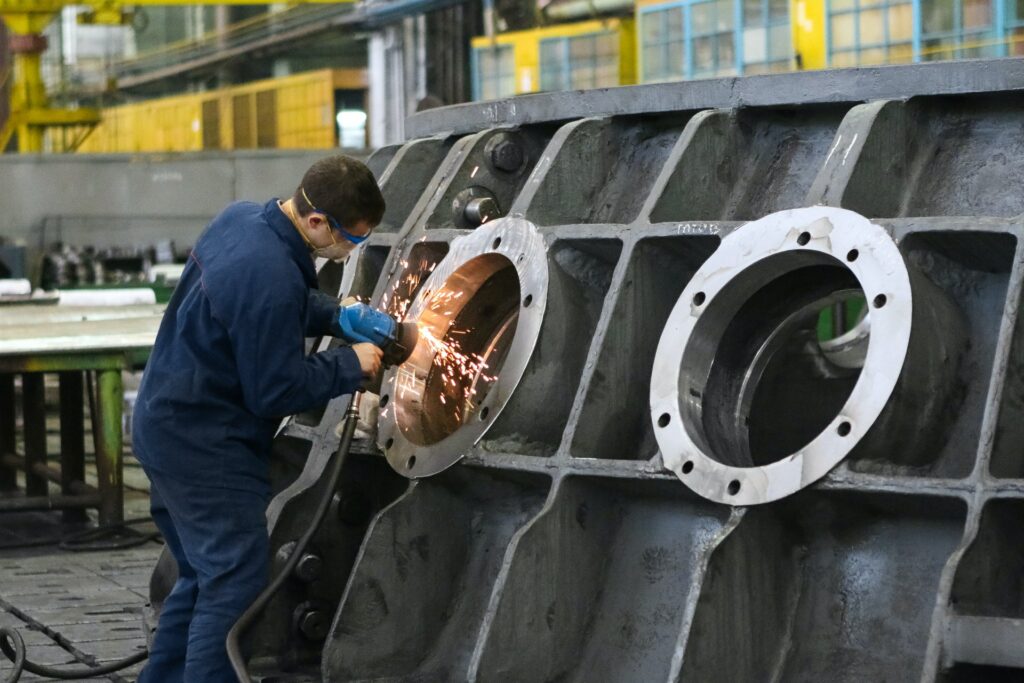Engineering is a discipline that uses science, math, and technology to plan, design, and build things. Engineers are problem-solvers, inventors, researchers, and pioneers. The impact of engineering can be found everywhere in our daily life. An engineer created the device you're using to read this website, the buildings you live and work in, the roads and vehicles that move us around, and the processes that provide us with fresh water and electricity.

Do you enjoy working with electrical and lighting systems? Do you have strong science and math skills? If so, architectural engineering may be for you! Architectural engineers focus on the engineering aspects of a building and may work with architects on their projects. They work to ensure buildings are sustainable, safe, and efficient.
Sample Careers: Manufacturing Engineer, Project Manager, Structural Engineer, Architect, Interior Architect, CAD/BIM Manager, Acoustician, City Planner, Landscape Architect, Sustainability Specialist
STEM Outlook: Job availability for architectural engineering is forecasted to grow by 6 percent over the next decade, according to the U.S. Bureau of Labor Statistics.
Explore Architectural Careers
Do you like to play games where you get to design your own cities and landscapes? Then civil engineering might be a good fit for you! Civil engineers get to design, build, and maintain structures that are necessary for our modern lives, such as roads, energy systems, airports, and water systems.
Related areas: Electrical Engineering, Architect, Industrial Designer, and Interior Designer
Sample Careers: Civil Transportation Group Managers, Civil Engineer, Engineering Project Manager, Engineering Inspector, Civil Engineering Drafter, Land Surveyor
STEM Outlook: Job availability for civil engineers is forecast to grow by up to 2 percent over the next decade, according to the U.S. Bureau of Labor Statistics.
Explore Civil Careers
Interested in supercomputers? Do you want to understand what makes a computer work? Try computer engineering. Computer engineering is a field all about researching, innovating and inventing new computer technologies. This includes computer and tech hardware development and building software and systems.
Related areas: Coding Specialist, Mechanical Engineer, Robotics, Software Application Developer
Sample Careers: Software Engineer, Hardware Engineer
STEM Outlook: Computer engineering is a wide field with varying career outlooks. According to the U.S. Bureau of Labor and Statistics, estimated job growth for software engineers is 22% over the next decade; for computer hardware engineers, the estimated job growth is 2 percent over the next decade.
Explore Computer Careers
If you are interested in learning how communication and navigation systems work, consider electrical engineering. Electrical engineers are researchers and innovators that design and manufacture various electric equipment devices, from electric motors and power generators to navigation and communication systems.
Sample Careers: Transmission Engineer, Electrical Engineer, Electrician, Public Utility Engineer, Field Service Engineer, Electronic Manufacturing Engineer
STEM Outlook: Over the next decade, the expected job growth for electrical engineers is 3 percent, or average, according to the U.S. Bureau of Labor and Statistics.
Explore Electrical Careers
Are you concerned about the environment and want to make a positive difference in your surroundings? Then environmental engineering is for you! Environmental engineers work to improve and innovate our current systems to be safer for the environment.
Related areas: Mechanical Engineer, Engineering Physicist, Industrial Engineer, Computer Engineer, and Engineering Scientist
Sample Careers: Water resources Engineer, Environmental Project Managers, Water/Wastewater Practice Manager, Environmental Compliance Engineer, Environmental Consulting, Environmental Engineer, Biogas Engineer
STEM Outlook: Employment opportunities for environmental engineers over the next ten years will grow at 3 percent, which matches the national average, according to the U.S. Bureau of Labor and Statistics.
Explore Environmental Careers
Industrial engineering is all about figuring out the most efficient way to complete a process. Industrial engineers devise plans to ensure that all aspects of a process -- people, materials, information, and energy -- are running at an optimal level.
Sample Careers: Industrial Engineering Technician, Implementation Consultants, Manufacturing Technician, Industrial Electrician, Professor, Supply Chain Analyst, Plastics Engineer
STEM Outlook: Employment opportunities for industrial engineers over the next ten years will grow at 10 percent, which is faster than the national average, according to the U.S. Bureau of Labor and Statistics.
Explore Industrial Careers
If you are interested in developing new forms of energy production, then check out mechanical engineering! Mechanical engineers work in a variety of industries including aerospace, automotive, biotechnology and manufacturing. This is a very broad field of engineering.
Related areas: Environmental Engineer, Industrial Engineer, Computer Engineer
Sample Careers: Integration Engineer, Data Center Mechanical Engineer, Automotive Engineer, Patent Lawyer, Mechanical Designer, Mechanical Engineer, Robotics Engineer
STEM Outlook: Employment opportunities for mechanical engineers over the next ten years will grow at 4 percent, which matches the national average according to the U.S. Bureau of Labor and Statistics.
Explore Mechanical Careers